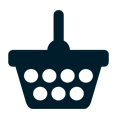Course overview
Cognitive Behavioural Therapy is a form of Psychotherapy that focuses on assessing the particular ways in which individuals think, perceive, behave and react, so that they can deal successfully with their behavioural, emotional or social challenges. CBT is a powerful tool for personal development. This course covers the history, techniques and applications that make up the CBT process, and examines the most common presenting issues for the CBT therapist.
Syllabus
Practical training
No practical training is required to complete this course.
Prerequisites
You do not need to have any additional qualifications before studying this course.
Level
On successful completion of this course you will have received professional training at level 3. This is ideal if you wish to start a practice, or expand a career. Graduates of this course wishing to start their own practice can also obtain professional liability insurance. It has also been endorsed by the Quality Licence Scheme and graduates will receive the QLS Certificate of Achievement as above. This course has been designed by BSY to meet specific learners’ and/or employers’ requirements which cannot be satisfied through current regulated qualifications. The Quality Licence Scheme, endorses high-quality, non-regulated provision and training programmes.
Certification
On successful completion students will receive dual awards: Award 1- The professional BSY Cognitive Behavioural Therapy (CBT) Diploma and will become a Registered BSY Cognitive Behavioural Therapist.
Award 2- Certificate of achievement at QLS Level 3 from Quality Licence Scheme. Registration through BSY is essential with this course.
How the course works
This course is delivered online or via mixed study*.
Online study
Upon enrolment you receive your first course lessons via our unique online learning platform providing you with the learning resources you need to complete the course.
You can study in your own time, at your own pace and from the comfort of your own home. You will be able to progress through your course whenever and wherever you wish – all you need is access to the internet, and a computer, laptop, tablet or smartphone.
If you have any questions, or would like feedback or encouragement about your course or your studies then you can contact our friendly tutors by phone, email or post.
At the end of each lesson are a set of questions. Completing these can aid your learning and help you master each step before moving on to the next. Your next lesson will then be provided for you to continue when it suits you. This allows us to continually assess understanding and competence of the subject.
Having progressed through each lesson you can take your final examination at home, and at a date and time that suits you. Then, on successful completion of final examination, you will be awarded both your BSY Diploma and QLS Level 3 Certificate of Achievement.
Additional study options
Mixed Study
As part of your enrolment onto this course you will receive access to our unique online platform which will provide you with online access to your course materials – making them easy to access on-the-go.
Once logged on, you can also request to have the materials supplied in printed format for you to keep, make notes and use for future reference.
*Mixed study option is available to request from within the online platform, a small one-off fee is payable to cover printing and postage costs.
Support
Your tutor will mark your lessons, giving valuable, constructive feedback - helping you to master each step before moving on to the next. You can contact them for support or advice throughout your studies.
You can also contact the support team who are here to help you Monday to Friday, 9am to 5pm.
We are proud of our friendly, caring ethos and aim to do all we can to help you succeed.
Enrol on this course for £55
Enrol now for £55.
Enrol now
There are two ways you can enrol on this course. You can:
- Pay 6 monthly payments of £38.33 (£30 administration fee included)
- or
- Pay the total course fee of £200 in one sum and receive a £50 voucher towards the cost of your next course
Enrol now
There are two ways you can enrol on this course. You can:
- Pay 6 monthly payments of £42.50 (£30 administration fee included)
- or
- Pay the total course fee of £225 in one sum and receive a £50 voucher towards the cost of your next course
Enrol now
There are two ways you can enrol on this course. You can:
- Pay 9 monthly payments of £38.88 (£30 administration fee included)
- or
- Pay the total course fee of £320 in one sum and receive a £50 voucher towards the cost of your next course
Enrol now
There are two ways you can enrol on this course. You can:
- Pay 9 monthly payments of £38.88* (£30 administration fee included)
- or
- Pay the total course fee of £320* in one sum and receive a £50 voucher towards the cost of your next course
Enrol now
There are two ways you can enrol on this course. You can:
- Pay 9 monthly payments of £42.22 (£30 administration fee included)
- or
- Pay the total course fee of £350 in one sum and receive a £50 voucher towards the cost of your next course
Enrol now
There are two ways you can enrol on this course. You can:
- Pay 11 monthly payments of £42.27 (£30 administration fee included)
- or
- Pay the total course fee of £435 in one sum and receive a £50 voucher towards the cost of your next course
Enrol now
There are two ways you can enrol on this course. You can:
- Pay 11 monthly payments of £42.27* (£30 administration fee included)
- or
- Pay the total course fee of £435* in one sum and receive a £50 voucher towards the cost of your next course
Enrol now
There are two ways you can enrol on this course. You can:
- Pay 11 monthly payments of £45.45 (£30 administration fee included)
- or
- Pay the total course fee of £470 in one sum and receive a £50 voucher towards the cost of your next course
Enrol now
There are two ways you can enrol on this course. You can:
- Pay 11 monthly payments of £45.45* (£30 administration fee included)
- or
- Pay the total course fee of £470* in one sum and receive a £50 voucher towards the cost of your next course
Enrol now
There are two ways you can enrol on this course. You can:
- Pay 11 monthly payments of £47.27 (£30 administration fee included)
- or
- Pay the total course fee of £490 in one sum and receive a £50 voucher towards the cost of your next course
Enrol now
There are two ways you can enrol on this course. You can:
- Pay 11 monthly payments of £47.27* (£30 administration fee included)
- or
- Pay the total course fee of £490* in one sum and receive a £50 voucher towards the cost of your next course
Enrol now
There are two ways you can enrol on this course. You can:
- Pay 11 monthly payments of £52.27 (£30 administration fee included)
- or
- Pay the total course fee of £545 in one sum and receive a £50 voucher towards the cost of your next course
Enrol now
There are two ways you can enrol on this course. You can:
- Pay 11 monthly payments of £52.27* (£30 administration fee included)
- or
- Pay the total course fee of £545* in one sum and receive a £50 voucher towards the cost of your next course
Enrol now
There are two ways you can enrol on this course. You can:
- Pay 11 monthly payments of £57.27 (£30 administration fee included)
- or
- Pay the total course fee of £600 in one sum and receive a £50 voucher towards the cost of your next course
Enrol now
There are two ways you can enrol on this course. You can:
- Pay 12 monthly payments of £65 (£30 administration fee included)
- or
- Pay the total course fee of £750 in one sum and receive a £50 voucher towards the cost of your next course
Enrol now
There are two ways you can enrol on this course. You can:
- Pay 12 monthly payments of £65* (£30 administration fee included)
- or
- Pay the total course fee of £750* in one sum and receive a £50 voucher towards the cost of your next course
Enrol now
There are two ways you can enrol on this course. You can:
- Pay 12 monthly payments of £82.91 (£30 administration fee included)
- or
- Pay the total course fee of £965 in one sum and receive a £50 voucher towards the cost of your next course
Enrol now
- Pay the total course fee of £215 in one sum
Enrol now
There are two ways you can enrol on this course. You can:
- Pay 12 monthly payments of £82.08 (£30 administration fee included)
- or
- Pay the total course fee of £955 in one sum and receive a £50 voucher towards the cost of your next course
Enrol now
There are two ways you can enrol on this course. You can:
- Pay 12 monthly payments of £82.08* (£30 administration fee included)
- or
- Pay the total course fee of £955* in one sum and receive a £50 voucher towards the cost of your next course
Enrol now
There are two ways you can enrol on this course. You can:
- Pay 4 monthly payments of £47.50 (£30 administration fee included)
- or
- Pay the total course fee of £160 in one sum and receive a £50 voucher towards the cost of your next course


*Registration fee included.
















